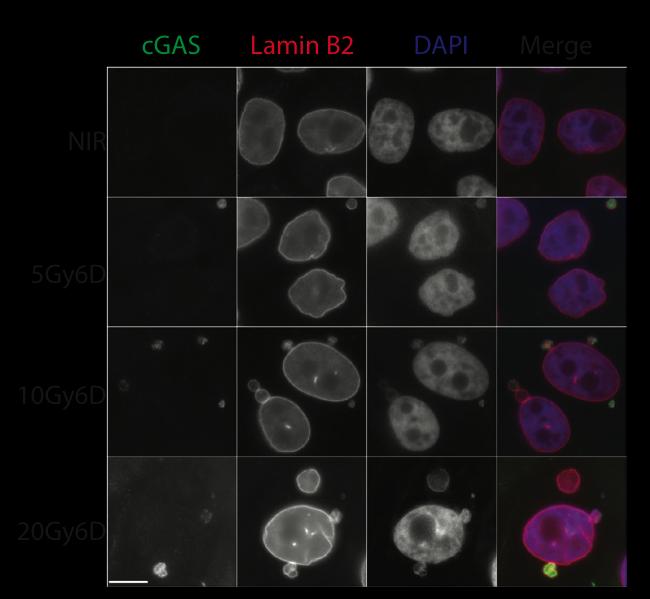현재 위치:홈 > 뉴스현황 > Press Events > Shifting DNA Damage ...
저자: 업로드:2017-08-03 조회수:
DNA damage within a cell is known to trip an alarm system that attracts the notice of immune cells, which then descend on the cell, whether it has been infected, deranged by cancer, or disabled by chemotherapy or radiation. Curiously, cells that have been subjected to radiation seem to benefit from a sort of grace period. Days may pass before immune cells show up to tumors that have survived the effects of toxic therapies.
The reasons behind this delay have been unclear, but now that they have been revealed by a new study, they may point to new therapeutic strategies, particularly those that combine genotoxicity and immune checkpoint inhibitors.
The new study comes from the Perelman School of Medicine at the University of Pennsylvania. There, researchers led by Roger Greenberg, M.D., Ph.D., detailed the events that unfold between DNA damage and the immune response.

"Having solved what cues immune cells to arrive at cancer cells with DNA damage in the first place, we can apply that information to design better treatments," said Dr. Greenberg. "This tactic aims to improve a patient's response to treatment using the immune system at the same time as inhibitors to keep cancer cells on track to replicate until cell death sets in."
Cancer is essentially a disease of the cell replication cycle. The goal of treating the disease is to permanently kill off the cells that replicate with abandon without any molecular brakes. Chemotherapy and radiation cause breaks in DNA and eventually death, even in these out-of-control cells. Within minutes after being exposed to treatment, cancer cells call on DNA-repair proteins to counteract the damage wrought by these treatments. Days later, immune cells show up to tumors to assist further in beating back cells that have survived the effects of the toxic therapies.
If a cell's DNA is damaged, it stalls for about 24 hours at a point in the cell replication cycle just prior to entering a phase that leads to cell division. Cells resume dividing as they eventually overcome their wounds, and this leads to activation of signals that attract the immune system.
Dr. Greenberg’s team decided to study how it is that this immune response can be delayed for days, in contrast to the acute DNA-damage responses that occur in minutes to hours. What they discovered led them to suggest an innovative approach to the design of combination therapies against cancer.
The team’s findings appeared in the journal